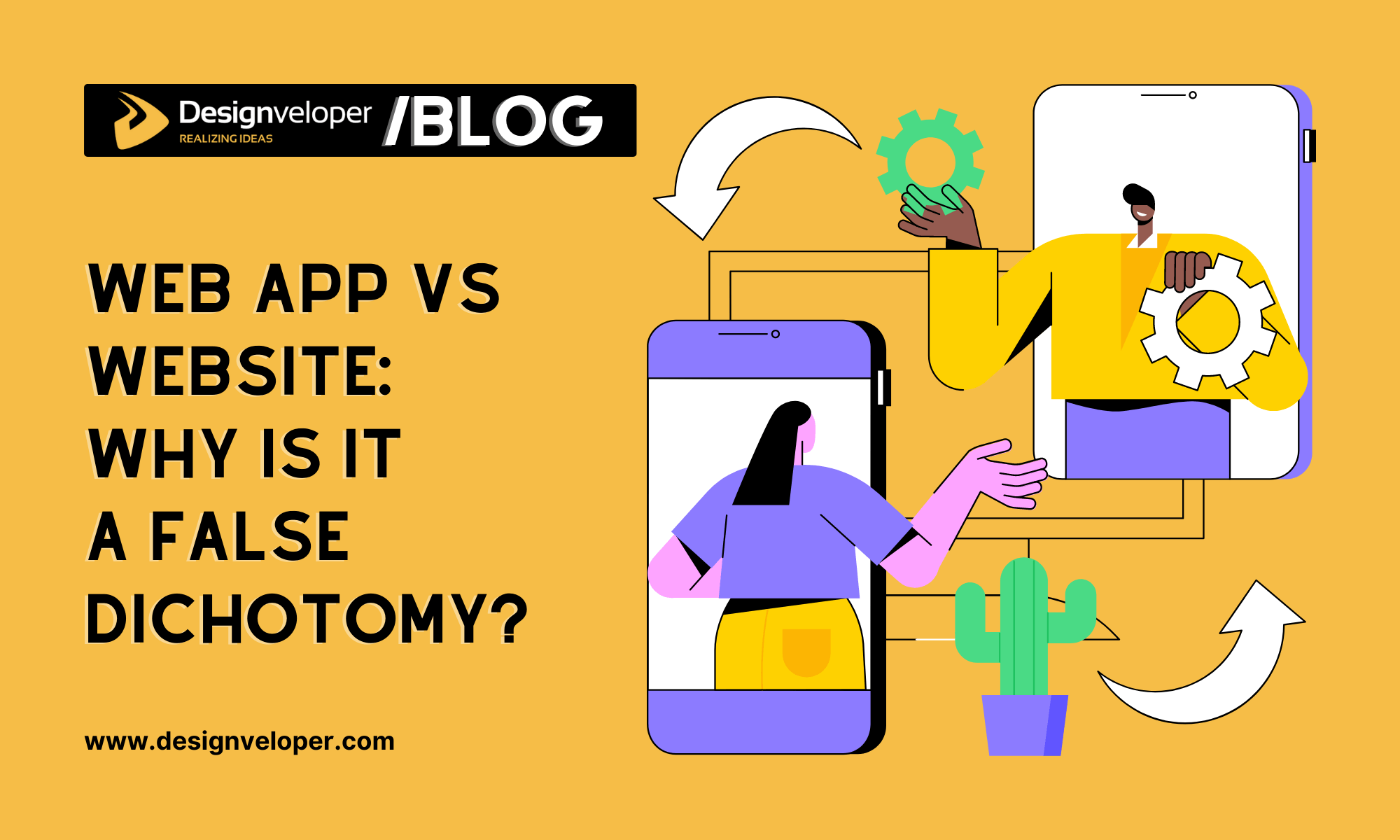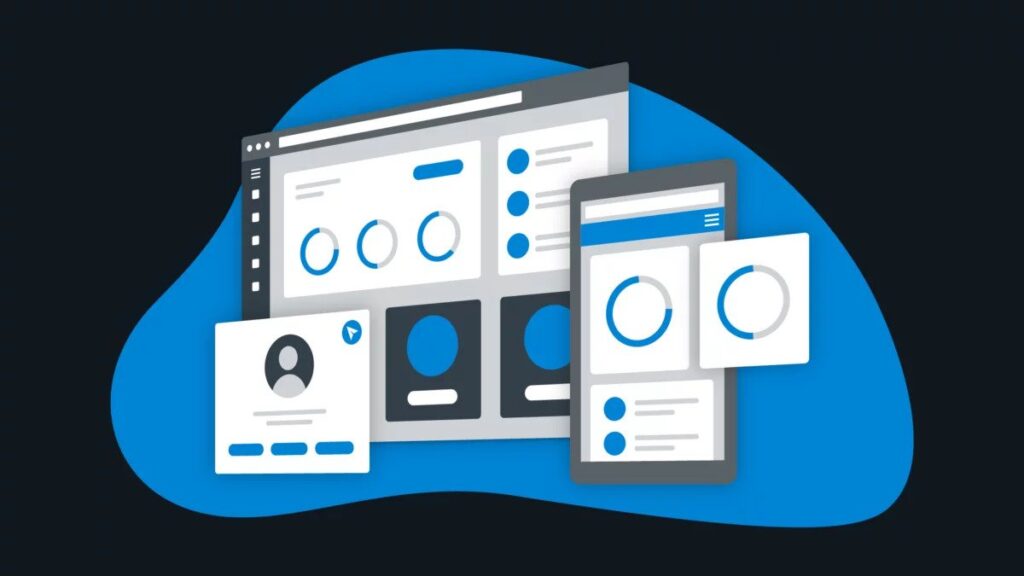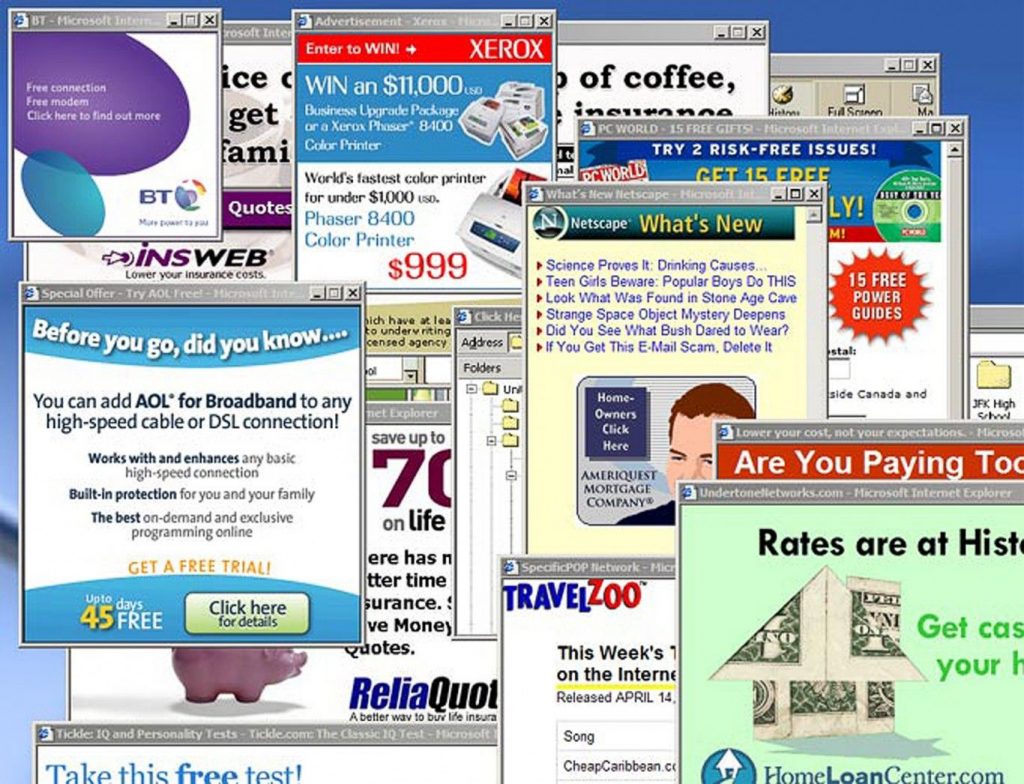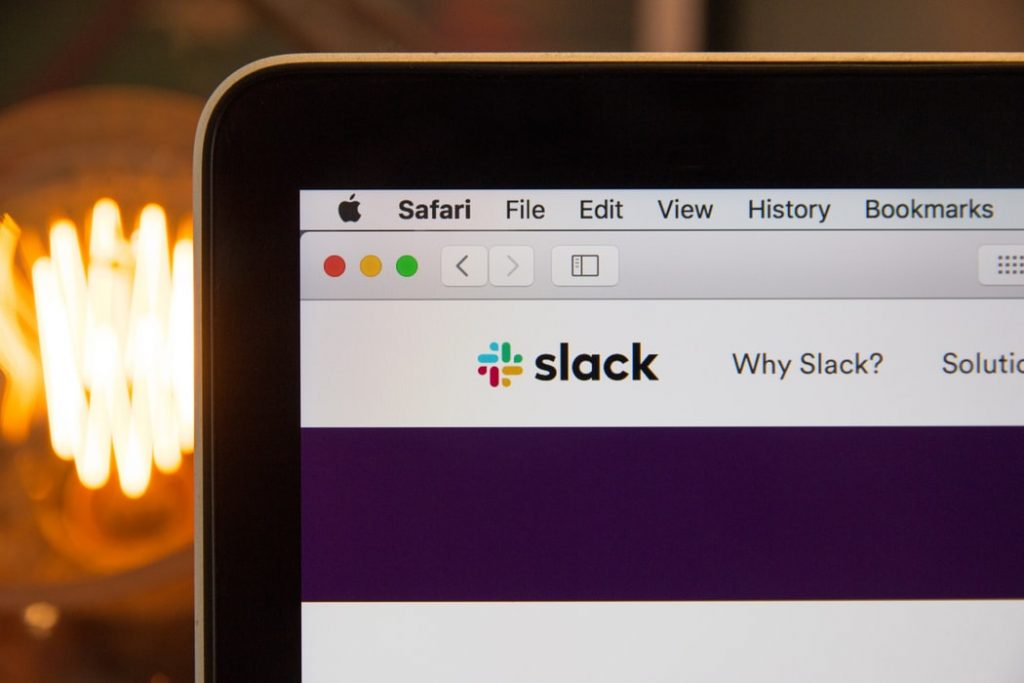Web App vs Website: Why Is It a False Dichotomy?

Try googling the keyword “web app vs website”; and you can see tons of articles jumping into breaking down the difference between website and web application. Yet if we attend more closely to how the authorities in the industry talk about it, we will come to know that this is actually a false dichotomy.
Jeremy Keith, for example, has written about this since 2010. He lists “documents and applications” as one of the most common misleading impressions we have about websites. And it’s actually where the misconception about “website vs. web app” engendered.
The Difference Between A Web App And A Website
Due to their similarities, it can be hard for a user to tell the difference between a website and a web application. But most of the time, they don’t really care regardless. The most important thing for the user is to get results that match what they are looking for.
If you’re a developer, on the other hand, you should care. You need to know very well how they are different. Let’s talk about the difference between a web app and a website.
1. What Is A Website?
A website consists of many web pages, which are each their own digital file and are made with HTML. For others to see your website, it needs to be stored on a computer with the Internet. This is called hosting. “Web Servers” is the name for these kinds of computers.

The website’s web pages connect to each other with hyperlinks and hypertext, and they all have the same look and user interface. The website might also have some extra files and documents, like photos, videos, or other types of digital property.
Since the Internet is used in every field, there are websites for many different causes and goals. Because of this, we can also say that a website is a digital environment that can provide information and solutions. It can help people, places, and things connect with each other to help organizations reach their goals.
2. What Is A Web App?
A web application is an app that can be accessed through a web browser. When viewed on a mobile device through a web browser, web apps look and work like mobile apps, but they are not the same thing.

Web applications use server-side scripts to get and store information. These scripts are written in languages like PHP and ASP. The relevant information then appears on the user interface using JavaScript and HTML5 scripts that run on the client side. This information could be given in a lot of different ways. Online shopping carts, content management systems, and online form generators are examples of common web applications.
Because web apps can be used in many different ways, people can do many different things. This means customers can use them to ask questions about products or services, make wishlists, and place orders. Apps also make it possible for employees to talk to each other, share documents, edit files, and collaborate. In this day and age of remote working, this is very important.
Is It Misleading To Have This “Website vs Web Application” Distinction?

The typical understanding is websites are collections of static HTML files that we can do nothing other than read, watch, and click the hyperlinks to navigate back and forth, whereas web applications enable us to interact with the elements on the page and perform certain tasks such as drafting an email, uploading a file or exporting a document.
However, this understanding is problematic because website development and web application development don’t work as Boolean or binary values: either this or that. In fact, web applications are also websites. And this whole thing is more like a sliding scale from document to application where we should not pin them to either end of that scale.
For example, we can say “Gmail is a web app” and “This blog post is a static document”, but what about Wikipedia? It’s a collection of documents, but we can also edit it. And Twitter as well, is it a document or a publishing tool?
If we consider interactivity the criterion to categorize websites into webs and web apps then even those web pages with the slightest smattering of JavaScript could also provide us with a certain number of dynamic elements. We are no longer counting on those static documents with hyperlinks from the hype of Web 2.0 in the Mid 2000s. So, isn’t every dynamic web page also a web app?
Then there’s this type of distinction that relies on the existence of SPA (Single Page Application). It says that a web application is different from a website in that every significant change to the web page does not require a round trip back to the server to refresh the entire page. However, most websites today are developed in HTML5 using AJAX architecture and thus allow us to do the tasks on a single page without reloading it.
Recommended reading: Web Application Examples and Definition for Beginners
Still, People Talk About “Web Apps”. Why?
Despite being no more than just a buzzword, “web app” is still the favorite term of many business people and marketers probably because it brings about a breath of fresh air to the overly-heard “website”.
Nonetheless, to some experts, differentiating websites and web apps does more harm than good. They believe that the dander of this artificial split is that many people might ignore new JavaScript tools, methods, and approaches due to the catchphrase “web apps”.

Recommended reading: Fundamentals of Ecommerce Development That You Should Know
1. Should we mess around with the website vs web application dichotomy?
Regarding the confusion of new jargon, designer Frances Berriman, who coined the term “progressive web apps (PWAs)”, together with her husband, Alex Russell, wrote this on her blog:
“I keep seeing folks (developers) getting all smart-ass saying they should have been PW “Sites” not “Apps” but I just want to put on the record that it doesn’t matter. The name isn’t for you and worrying about it is distraction from just building things that work better for everyone. The name is for your boss, for your investor, for your marketeer. (…) It’s marketing, just like HTML5 had very little to do with actual HTML.”
Frances Berriman
It’s so obvious that Frances is not the only one who thinks accuracy is secondary to marketing. The proof is whenever you try to search for the definition of “web apps” through Google, there are countless misleading results.
But what Frances said is partly right. To web developers, it’s of no use to elaborate on the difference between a website and a web application. It’s also not necessary to arbitrarily divide the entire web into different classes. The only thing of our concern is improving the web and offering the users a satisfactory experience.
Recommended reading: Web Application Architecture: Types, Components, and Tools to Creates
2. And the future of web apps

All in all, if there is something we could draw from the birth of the “web application” concept, it’s the desire to bridge the gap between websites and desktop or mobile applications. People want to have web pages that can work similarly to apps. Those that are able to go offline, run in the background, escape the tabs, show up on the smartphone home screens, and even outweigh native apps in requiring less storage space.
FURTHER READING: |
1. Why Google Advocates Progressive Web Apps? |
2. 6 Best Progressive Web Apps Examples (PWAs) Over the Past Decade |
3. Progressive Web App Tutorial for Beginners |
All the efforts made in transforming the web during the past decade are probably all about this. Progressive Web Apps, WebAssembly, and Houdini are just a few. So, maybe there comes a time when websites evolve to the point where they can totally match up to applications. And that is the future we should be ready to embrace.

















































